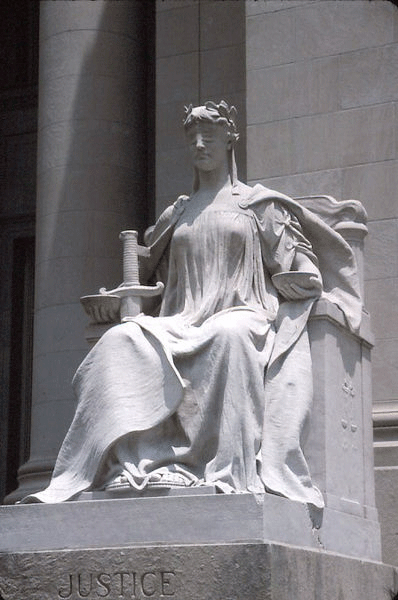Of all the outrages President Trump (I’ll never get used to that phrase) has already committed, the one that made the media-government complex apoplectic was when he derisively spoke the truth to Bill O’Reilly: “What, you think our country’s so innocent?”
 Though the truth of his rhetorical question is self-evident, it’s necessary, in the present zeitgeist, to ask: Are Donald Trump’s psychological complexes solely his own, or do they reflect a national neurosis?
Though the truth of his rhetorical question is self-evident, it’s necessary, in the present zeitgeist, to ask: Are Donald Trump’s psychological complexes solely his own, or do they reflect a national neurosis?
It’s odious of conservatives to prattle on about how Trump “seems intent on destroying the postwar world order.” What world order? The American-made one that led to the invasion of Iraq that produced the proxy war in Syria, and the international paralysis in the face of five years of unspeakable suffering of the Syrian people?
Various voices of reason on the right declare, “At the heart of Trumpism is the perception the world is a dark, savage place.” That sets a new standard for sophistry, since it expresses their view of human nature!
The evidence for this linkage is in their own words: “Prudence is the ability to govern oneself with the use of reason…the ability to suppress one’s impulses for the sake of long-term goals.”
Let me see–they don’t believe the world is a dark, savage place, but they do believe the human heart is, requiring people to “suppress their impulses with the use of reason?” If that isn’t a contradiction, I don’t know what is. And if it doesn’t unwittingly describe the horns of the dilemma on which the American people are impaled, I wouldn’t know a rhino if I saw one.
The “suppression of impulses” is considered a virtue by conservatives, and a vice by liberals. But it amounts to the same thing. Repression and profligacy are two sides of the same coin.
The assertion and veneration of reason by the right or the left as the highest principle, which has been the cornerstone of Western philosophy since the so-called (excuse and recuse me) Enlightenment, has allowed the darkness within American and Western consciousness to go unexamined and unchecked.
Darkness is matter, comprised of useless and malignant content in consciousness. It’s the storehouse of the past, the brain’s RAM stuffed with unneeded memories, and the sludges of grudges.
Reason, as has been pointed out before, is necessary but not sufficient, especially in the face of evil. Pardon my repeating the obvious play on words, but evil trumps reason.
What is true within us doesn’t require spadework, just perception and acknowledgment. What is false within us requires spadework but not judgment and effort. Darkness is only strengthened by judgment and suppression. And there is no “suppression of impulses” without standing in judgment, and vice versa.
To see anger as anger, hate as hate, and violence as violence within one, and neither rationalize nor judge them, requires a completely different approach than the one to which we have been indoctrinated in the West. I’m not holding up the East as a paragon of enlightenment, just saying that many of the great teachers in the East took a much healthier approach, which Westerners can learn and adopt during these dark times, to the benefit of themselves and their countries.
It’s noteworthy that a saying attributed to Jesus (which is the antithesis of the poisonous bromide, “use reason to suppress one’s impulses”) is not to be found in the Bible.
It goes: “Bring forth what is within you, and what you bring forth will save you; do not bring forth what is within you, and what you do not bring forth will destroy you.”
Perhaps never in history has the truth of those words been more applicable than to present-day Americans, who have produced a president that cunningly channels their unaddressed undercurrents.
It’s therefore beyond obtuse for conservatives to say, “Donald Trump didn’t have to have an administration that was at war with everyone but its base, [because] he came to office with a populist mandate that cut across partisan categories.” Pathologies in America and Americans gave rise to Trumpism, not merely economic discontent and the bamboozling of innocents by a supreme snake oil salesman.
Will Durant, perhaps the last American philosopher in modern history to inject a genuine philosophical strain into the body politic, wrote in “The Story of Philosophy”: “There are only three things worthwhile in this world—justice, beauty and truth; and perhaps none of them can be defined.”
On a cold, clear dawn after days of clouds and rain in California, with the first light appearing in the east and a full “snow moon” still bathing the liminal sky with the white light of what remains of the night, I fully concur.
Without philosophical quibbling however, I wouldn’t put the earthly trinity in that order. Despite or because of their undefinability, beauty is the wellspring of truth, and truth is the wellspring of justice.
Martin LeFevre

